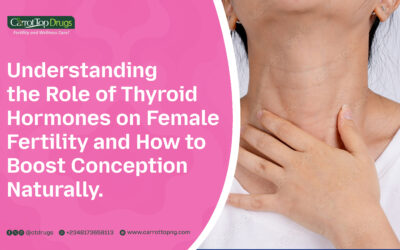Introduction
Lots of women have irregular periods at some point. They can come from different health issues. It’s good to understand what causes these changes so you can take care of your menstrual health.
What is an Irregular Period?
An irregular period is when a woman’s menstrual cycle isn’t consistent. Usually, a cycle lasts between 21 to 35 days. If the length changes a lot or if bleeding is very heavy or light, that’s seen as irregular.
For some women, irregular periods happen now and then. For others, they might be more frequent and could signal a health issue. Spotting these changes early helps prevent problems down the line.
Facts About Irregular Periods
Studies show that around 14 to 25% of women who can get pregnant deal with irregular menstruation. A 2020 study found that teens and women close to menopause are more likely to have these issues.
Where a woman lives can also play a role. Women in places with little access to healthcare may have more irregular periods. This could be due to untreated health issues or not enough information.
Does It Affect All Women?
Not every woman has irregular menstruation. Many have regular cycles all their lives. But things like age, genes, and lifestyle can raise the risk. Teens and women nearing menopause often see changes in their cycles due to hormone shifts.
Health problems like polycystic ovary syndrome (PCOS) and thyroid issues can also make periods irregular. Women with these conditions might need medical support to get their cycles back in order.
Signs and Symptoms of Irregular Periods
Women with irregular periods might notice:
– Skipped or late periods.
– Cycles shorter than 21 days or longer than 35 days.
– Heavy bleeding or spotting between periods.
– Bad cramps.
Other signs could include mood swings, tiredness, or acne, depending on the cause. It’s a smart move for women to keep track of these signs and talk to a healthcare provider for a proper diagnosis and treatment.
Causes of Irregular Period In Women
1. Hormonal Imbalances
Hormonal imbalances can mess with a woman’s periods. Hormones like estrogen and progesterone control the menstrual cycle. If these levels shift, it can cause trouble. For example, polycystic ovary syndrome (PCOS) raises male hormones and messes up ovulation. This can lead to missed or irregular menstruations. Researchers have found a solid link between PCOS and cycle issues. Women with PCOS often have hormonal problems that impact their periods.
Not just PCOS. Other issues with hormones, like problems with the thyroid or pituitary glands, can also cause missed periods. If thyroid hormones are out of whack, whether too high or too low, it can interfere with ovulation. If you have ongoing menstrual issues, it’s a good idea to get hormone levels checked. That way, you can find out what’s wrong and get the right treatment.
2. Stress and Lifestyle Factors
Chronic stress can really shake things up. It affects the hypothalamus, a part of the brain that manages hormones. When stress is high, the hypothalamus releases more cortisol, a stress hormone. This can throw off the release of other hormones and mess with ovulation too. High stress can delay or even stop periods for a while. In serious cases, it can lead to no periods for months.
Lifestyle matters too. Poor sleep, over-exercising, and not eating right can worsen the situation. For example, too much exercise or not enough sleep can lower estrogen. This may lead to missed periods. Eating poorly can also mess with hormone production. Keeping a balanced life with good sleep, nutrition, and stress control is key for healthy hormones and regular periods.
3. Thyroid Disorders
Thyroid problems like hyperthyroidism (too much thyroid hormone) and hypothyroidism (too little) can cause irregular periods too. The thyroid helps regulate metabolism and the menstrual cycle. If it’s not working, it can lead to strange periods. A study shows that untreated thyroid issues often lead to period problems.
With hypothyroidism, low hormone levels can raise prolactin. This can stop ovulation and cause missed periods. On the flip side, hyperthyroidism might lead to lighter or even stopped periods. If you’re having period issues, it’s smart to check thyroid functions. Treating thyroid problems can help get periods back on track.
4. Uterine Abnormalities
Things like fibroids, endometriosis, or polyps can impact menstrual cycles. These are structural issues that can lead to heavy bleeding, irregular periods, or pain. Fibroids can cause heavy bleeding and endometriosis may lead to pelvic pain. If you have these symptoms, it’s best to see a gynecologist. They can help figure out what’s going on and offer treatment. Sometimes, medication or even surgery might be needed to get periods back to normal.
5. Medications and Contraceptives
Certain meds and birth control can mess with periods too. Antidepressants, blood thinners, and chemo drugs can disrupt hormone balance. Some meds affect estrogen and progesterone, which can change cycles. If you’re on these meds and having period issues, talk to your doctor about what’s happening.
Hormonal birth control like pills or IUDs can also cause changes. While they aim to regulate periods, they can sometimes cause spotting or missed periods. Usually, these side effects go away as your body adjusts. If period issues continue after stopping birth control, check in with your doctor for further advice.
6. Weight Fluctuations
Big weight changes can really shake up hormones and menstrual cycles. Obesity often means higher estrogen levels, which can lead to period problems. Extra body fat can impact how hormones are produced and regulated, causing missed or heavy periods. Plus, obesity can be linked to PCOS, which can cause irregular periods too.
On the flip side, losing weight quickly—especially from extreme dieting—can stop periods entirely. Low body weight reduces hormones needed for ovulation. If you’re experiencing major weight changes, focus on eating balanced meals and staying active. This can help keep periods regular and improve overall health.
7. Chronic Health Conditions
Chronic health issues like diabetes and celiac disease can interfere with regular periods. For diabetes, fluctuating insulin can mess with hormones, causing cycle irregularities. Women with diabetes need to manage their health closely to help regulate their periods.
Celiac disease can affect how your body absorbs nutrients. This can lead to deficiencies in vitamins needed for hormone production, possibly leading to irregular periods. Managing chronic conditions early is vital for maintaining good menstrual health.
Treatment Options for Irregular Period in Women
1. Hormonal Therapy
Hormonal therapy is a common way to treat irregular periods. Doctors often suggest birth control pills or patches. These help balance hormones like estrogen and progesterone, which keeps menstrual cycles regular. This is especially helpful for women with conditions like PCOS that disrupt ovulation. With steady hormone levels from these treatments, women may avoid missed or irregular periods. They can also ease other PCOS symptoms like hair growth and acne.
Hormonal therapy can also help women in perimenopause. This time can bring irregular cycles due to lower hormone levels. Hormonal treatments can help manage symptoms like hot flashes and mood changes while stabilizing periods. For women dealing with endometriosis or fibroids, hormonal therapy can lessen heavy bleeding and other symptoms. It’s best to talk to a healthcare provider to find the right treatment for your needs.
2. Lifestyle Changes
Making healthy lifestyle choices can really help with menstrual regularity. Eating well, getting some exercise, and managing stress are key for hormone balance. Keeping a healthy weight supports estrogen production, which is important for regular cycles. A diet filled with fruits, veggies, and whole grains is best. On the other hand, eating too many processed foods or sugars can throw off hormone levels and lead to irregular periods.
Exercise is also important. Moderate workouts like walking, swimming, or yoga can boost circulation and lower stress, helping to regulate periods. But overdoing it can cause missed periods. Yoga and mindfulness can reduce stress and support hormone balance. Stress management techniques like meditation, deep breathing, and good sleep help keep your body in sync for regular cycles.
3. Medicines for Health Issues
Sometimes, irregular periods are linked to health problems like thyroid disorders or uterine issues. Thyroid hormone replacement therapy can help women with thyroid conditions. Correcting hormone levels can bring back regular periods. Similarly, managing conditions like diabetes or PCOS with the right medications can also help.
For uterine problems like fibroids or endometriosis, surgery may be necessary. Procedures like hysteroscopy can remove tissue and restore regular flow. Hormonal therapy or medications can also help shrink fibroids and manage symptoms. It’s important for women with these conditions to seek professional help for better menstrual health.
4. Nutritional Support
Good nutrition is essential for hormone health and regular periods. Supplements like Evergreen Formuar for Women and Evergreen Egg Boost haxe vitamin D, magnesium, and omega-3s can maintain hormone balance. Vitamin D helps hormone regulation, and low levels can lead to irregular periods. Magnesium can lower cramps, while omega-3s from fish and flaxseeds support reproductive health.
Working with a dietitian can help create a nutrition plan for menstrual health. A dietitian can spot any deficiencies and suggest changes or supplements. Eating plenty of fruits, veggies, and lean proteins can help balance hormones. Cutting back on caffeine, alcohol, and sugar can also prevent menstrual issues. A personalized diet plan with lifestyle changes can help restore regularity.
5. Alternative Therapies
Alternative therapies like acupuncture and herbal remedies are becoming popular for treating irregular menstruation. Acupuncture might help by improving blood flow and reducing stress. Studies show it can help women with PCOS or endometriosis by balancing hormones and lowering inflammation. Herbal options like chasteberry have been used for menstrual issues and may help regulate progesterone levels.
Even though alternative therapies can work for some, it’s smart to talk to a healthcare provider before trying them. Not all treatments are proven to be safe and some might interact with medications. A healthcare provider can advise on the best options. Combining alternative therapies with conventional treatments can offer a well-rounded approach to managing irregular periods, especially when paired with good lifestyle choices and nutrition.
Conclusion
Irregular periods can really affect a woman’s life. Sometimes, they’re not a big deal. But if they keep happening, it’s best to get checked out. Knowing what causes these irregularities can help tackle the symptoms and get back on track.
Frequently Asked Questions
- What causes irregular periods in teenagers?
Hormonal changes during puberty are the main cause. Stress and lifestyle choices can also play a role.
- Can irregular menstruation affect fertility?
Yes, if ovulation is off, like with conditions such as PCOS, it can make getting pregnant tougher.
- Are irregular periods a sign of pregnancy?
Skipped periods can mean pregnancy, but look out for other signs like feeling nauseous or tired.
- Can stress alone cause irregular menstruation?
Absolutely. Long-term stress can throw off your hormones and lead to missed or late periods.
- When should I see a doctor about irregular periods?
If your periods are irregular for three months or if you have bad symptoms that affect your daily life, it’s time to talk to a doctor.

















